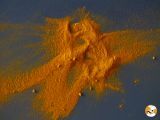5 foods to naturally increase collagen production!

Collagen is an essential protein for healthy skin, bones, joints and other connective tissues. Over the years, the natural production of collagen decreases, which can lead to the appearance of wrinkles, sagging and other age-related changes. But did you know that it is possible to stimulate collagen production through food?
What is collagen and why is it important?
Collagen is the most abundant protein in the human body, forming a kind of "glue" that binds cells together and provides structure to tissues. It is essential for skin elasticity, bone strength and joint health.
How can food help produce collagen?
Although the body produces collagen naturally, certain nutrients can stimulate this production. The main foods that help increase collagen production are:
- Rich in vitamin C: Vitamin C is essential for collagen synthesis. Citrus fruits (orange, lemon, acerola), strawberries, kiwi, broccoli and peppers are excellent sources of this vitamin.
- Rich in amino acids: Amino acids are the "bricks" of proteins, including collagen. Meat, fish, eggs, legumes and seeds are rich in amino acids that are essential for collagen production.
- Rich in zinc: Zinc is an important mineral for healing and collagen production. Meat, seafood, legumes and seeds are good sources of zinc.
- Rich in copper: Copper is another essential mineral for collagen production. Nuts, seeds, seafood and liver are rich in copper.
Specific foods to increase collagen production:
- Bone broth: Bone broth is rich in collagen and other nutrients that benefit joint and skin health.
- Red fruits: In addition to vitamin C, red fruits are rich in antioxidants that protect cells and slow down ageing.
- Oily fish: Salmon, tuna and sardines are rich in omega-3s, which help reduce inflammation and improve skin health.
- Legumes: Beans, lentils and chickpeas are rich in protein, fiber and various minerals that are important for collagen production.
- Seeds: Chia, linseed and sunflower seeds are rich in omega-3, antioxidants and minerals that are essential for skin health.
Other factors that influence collagen production:
In addition to diet, other factors can influence collagen production, such as:
- Sun exposure: Excessive exposure to the sun without protection can damage collagen and accelerate skin ageing.
- Smoking: Smoking reduces collagen production and damages skin elasticity.
- Pollution: Pollution can generate free radicals that damage collagen and accelerate ageing.
It's worth noting
A balanced diet rich in nutrients is essential for stimulating collagen production and maintaining healthy skin, bones and joints. By including foods rich in vitamin C, amino acids, zinc and copper in your diet, you can contribute to a younger, healthier appearance.
Read more
 Mirella Mendonça
Mirella Mendonça


Comments